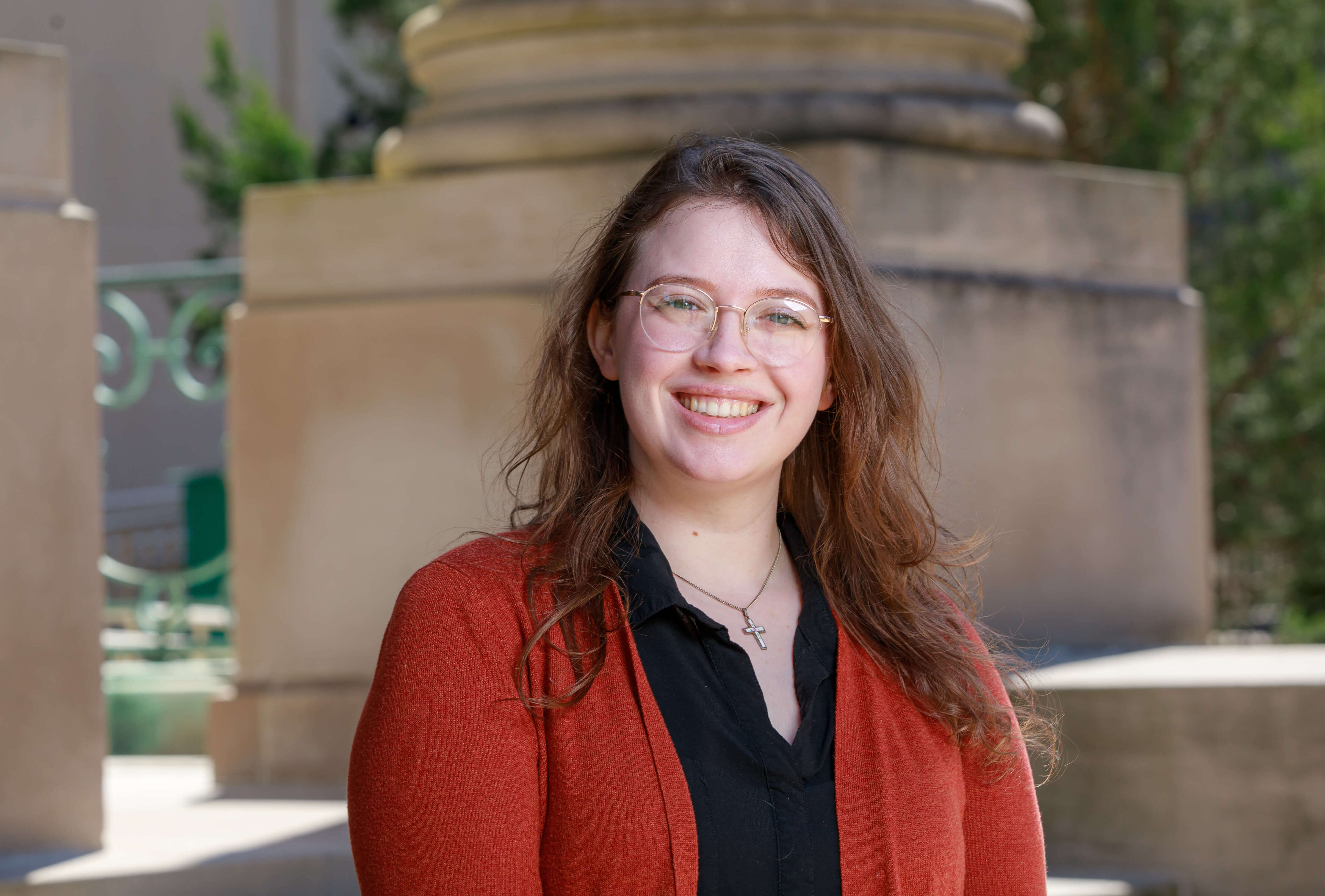Senior English major Anna Huber is completing her undergraduate departmental honors thesis on Bobbie Ann Mason’s short story “Shiloh,” and presented different parts of her thesis at two conferences.
The first conference was the National Conference on Undergraduate Research (NCUR) in April 2021, and the second, the Mid-Atlantic American and Popular Culture Association (MAPACA) in November 2022. In between, she also presented her research in poster form at last spring’s student Scholarship Week at Monmouth University.
Her MAPACA conference presentation was titled, “’It Don’t Leave You’: Norma Jean Moffit and the Trauma of SIDS in Bobbie Anne Mason’s ‘Shiloh.’” It was accepted to be presented on a panel on “Several Aspects of Death in American Culture,” along with papers by two professors.
“Presenting at a conference is always daunting, especially one of MAPACA’s magnitude,” Huber said, “I must have assembled and re-worked my presentation about six times until I came to something I was satisfied with.”
According to Huber’s abstract posted online, her presentation “proposes a literary trauma theory approach” to a character in the story, Norma Jean. Norma Jean marries Leroy, the father of her child Randy, who dies of Sudden Infant Death Syndrome. “She suffers in silence as many parents of SIDS victims do,” the abstract says, and “her husband Leroy reminds her of her deceased son.” At first Norma Jean can cope because Leroy’s work takes him far from home.
After Leroy is injured and must remain at home, Huber’s abstract says, Norma tries to cope “by partaking in activities outside the home,” which is “unsuccessful because eventually she must return home, and to him.” Norma’s mother Mabel makes circumstances worse. The abstract concludes, “While visiting the Civil War battlefield and cemetery in Shiloh, Tennessee, Norma tells Leroy she wants a divorce….Divorce works for Norma because it frees her from her husband who reminds her of her lost son. Norma leaves him [Leroy] because of her own trauma, not as a feminist rebellion.”
The panel attendees were professors from universities in New Jersey, Pennsylvania, and New York. Huber said, “My preparation was well worth it. The experience [helped me grow] as a student and presenter. The professors with whom I shared my research were very kind and supportive. Their questions validated my work and encouraged me to pursue my studies and theories with enthusiasm.”
Among the attendees was her academic advisor and thesis director, Stanley Blair, Ph.D., associate professor of English, and former MAPACA president. “Anna’s presentation was focused, professional, and engaging,” Blair said, “I was especially impressed by how she delved into the significance of specific passages like ‘trucking calves to slaughter’ and the passage about a child mauled to death by a dog, which in her explanation of the story act as PTSD triggers for Norma’s SIDS-related trauma.”
Her presentation was well-received. “Two professors said they were familiar with the story and were persuaded by Anna’s trauma-theory approach to it,” Blair said, “and the chair invited her to propose and present again at next year’s conference.”
When not presenting at conferences and writing papers for classes, Huber applies her writing skills by tutoring her fellow students as a peer writing assistant in Writing Services. Her supervisor, Writing Services Director Frank Fury, Ph.D., said, “Anna is one of Writing Services’ most reliable and most effective peer writing assistants. She brings great enthusiasm to her job, and she is always eager to work with students to help them improve their writing.”
Even though Huber’s conference experience was challenging, she was grateful for it. “I am grateful to the MAPACA professors who made the experience possible and allowed me to present, even as an undergraduate. Of course, I offer most of my thanks to Dr. Stanley Blair without whom none of this would even be possible. I look forward to future possibilities or platforms for presenting my research and thesis.”

